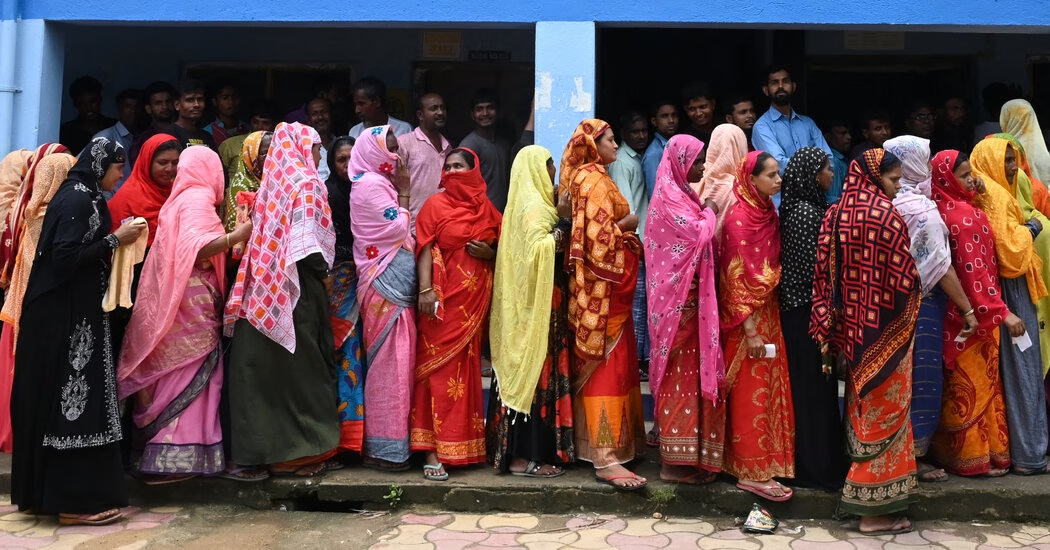The video causing a stir doesn’t impress with its visual appeal. A group of 12 men adorned with bright flower garlands is captured reading solemn statements during the formation of a local government in a secluded rural area of India. The controversy arises as six of those elected to lead are women, notable by their absence – each replaced by her husband.
The video gained immense popularity after the March 3 ceremony, attracting national media attention, including on International Women’s Day. The absence of the elected female leaders, though shocking, is not unexpected. In rural India, such unofficial substitutions are common, especially where women are traditionally reserved roles in local leadership.
Since 1992, national laws have mandated that one-third to half of the positions in panchayats, or village councils, be reserved for women. This intention was to empower a new generation of female leaders and make councils more responsive to women’s needs. However, the spirit of this law often goes unheeded, with women serving as deputies to their power-wielding husbands, a phenomenon known in Hindi as “pradhan pati”.
India still has a long journey ahead in empowering women at the national level. Only about 15 percent of parliamentary members are women, and there are just two women in the 30-member cabinet of Prime Minister Narendra Modi. In 2023, a constitutional amendment was approved to reserve a third of parliamentary seats for women, though this will not take effect for at least four more years. Despite some female politicians gaining national fame, their success is often through association with established male politicians, not via their reserved panchayat seats.
In Paraswara village, where the incident occurred, the absent women’s husbands defended their absence, attributing it to illness and funeral duties. Despite this, there is a consensus that sometimes a husband stands in, and no wrongdoing is perceived.
Over the past 15 years, Bahal Ram Sahu’s wife, Ram Bai, has held elected positions in Paraswara’s panchayat, including its head. Sahu, however, believes he plays a vital role, guiding his wife in all matters and representing her when necessary. This dynamic is mirrored in a popular Amazon Prime series titled “Panchayat”, where a local boss’s wife pretends to hold office while the husband makes all the decisions.
The national government has recognized this issue, commissioning a 2023 report on “proxy participation”, and proposing severe penalties for husbands usurping their wives’ roles. “Panchayat” the TV show is also playing a part in portraying a shift, with the wife character proving to be shrewd and capable, ultimately showing that the woman knows best.
There is also positive encouragement from other parts of India. In Punjab, Sheshandeep Kaur Sidhu became the head of her village’s panchayat at 22. Despite facing skepticism due to her youth, she pursued solutions to issues like education and sanitation. Sidhu advocates for women seated in panchayats across India to stand up for themselves and their gender, utilizing the power entrusted to them. She tackled a symbolic problem in her village by having nameplates hung outside homes headed by women, a change that previously only recognized male relatives’ names.
Source: https://www.nytimes.com/2025/03/19/world/asia/india-panchayat.html





